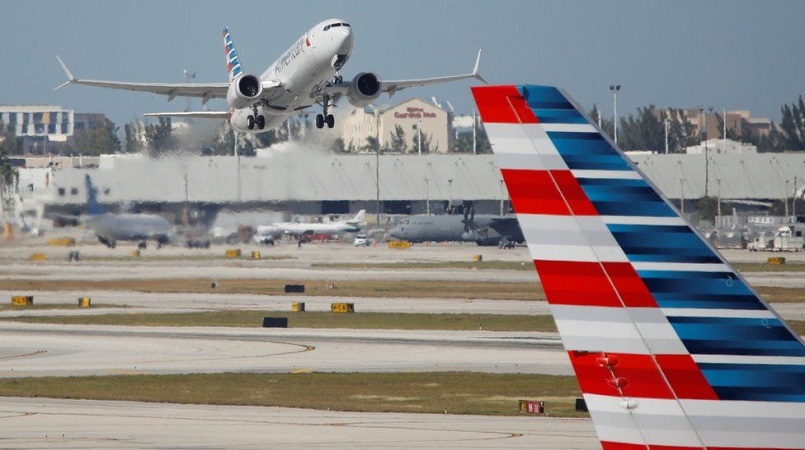
Aircraft giant Boeing will answer a fraud charge in court later over two plane crashes which killed 346 people.
Both accidents were down to flaws in the flight control systems on the 737 Max aircraft which caused nosedives.
Boeing was found to have failed to disclose information about the system but avoided a trial by agreeing to pay $2.5bn (£1.8bn) in fines and compensation.
Relatives of those who died are trying to reopen the settlement.
It means that for the first time, the company will be formally charged in court in relation to the two crashes, and will have to plead guilty or not guilty.
Boeing has previously opposed reopening the agreement with the US Department of Justice (DOJ), saying to do so would be "unprecedented, unworkable and inequitable." It declined to comment on the arraignment.
Boeing 737 Max aircraft were cleared to fly again in the US in 2020 and the UK and EU in 2021 after being grounded following the crashes in 2019.
It is nearly four years since Ethiopian Airlines flight ET302 crashed minutes after take off from Addis Ababa to Nairobi. 157 people died when it plunged into farmland outside the Ethiopian capital in March 2019.
The accident involved a new design of aircraft - the 737 Max.
Just months earlier, an almost identical aircraft operated by the Indonesian carrier Lion Air had crashed into the Java Sea on what should have been a routine flight from Jakarta to Pangkal Pinang.
189 passengers and crew lost their lives.
It later emerged that both accidents were triggered by design flaws, in particular the use of flight control software known as MCAS.
The system was designed to assist pilots familiar with previous generations of 737, and prevent them from needing costly extra training in order to fly the new model.
But sensor failures caused it to malfunction - and in both cases it forced the aircraft into a catastrophic dive the pilots were unable to prevent.
Investigations in the US revealed that Boeing had not included information about the MCAS system in pilot manuals or training guidance, and had deliberately sought to downplay the impact of the system in its communications with the US regulator, the Federal Aviation Administration.
